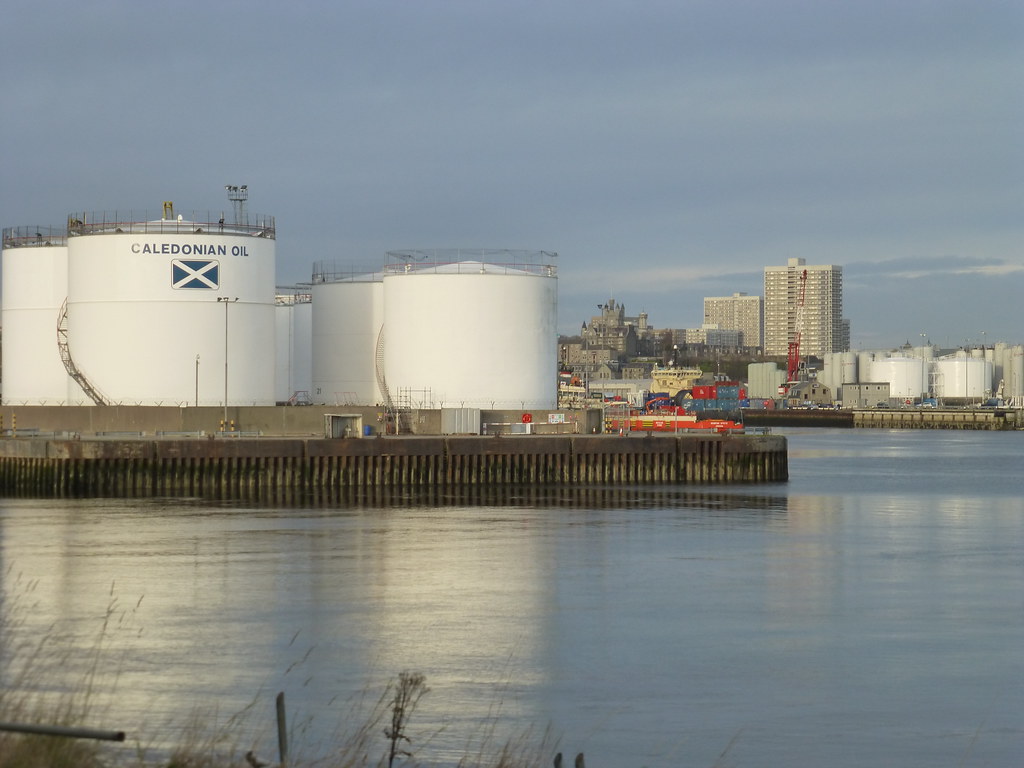Top Stories

The Glut Is Far From Over As Offshore Oil Storage Continues To Swell
Nine tankers carrying as much as nine million barrels of crude are floating in the North Sea as traders can’t afford to sell the crude they have—at least not profitably enough. In May, there were seven million barrels of oil stored in tankers in the North Sea. Bloomberg reports , citing the International Energy Agency, that worldwide crude oil amounts at sea had reached 95 million barrels at the end of June, the highest since the global financial recession in 2008. However, during the 2008-2009 rise in crude oil storage at sea, traders were holding off the sales to make bigger profits – crude then was in triple-digit territory, hitting US$140 a barrel in 2008. Now they can’t afford to sell it, as prices are down once again, following API’s estimate that U.S. stockpiles have risen by 2.2 million barrels in the week to July […]
Does This Estimate Suggest We Are Heading For $30 Oil?
Crude oil and refined products are once again begin stored on tankers floating at sea, a sign that the two-year oil glut is far from over. Short-term floating storage is now at its highest level since 2009, the International Energy Agency said in its July Oil Market Report. Bloomberg echoed that conclusion, finding that 9 million barrels of crude oil were floating off of the coast of the UK in the North Sea in June, a sharp jump from 7 million barrels in May. Three traders who asked not to be identified told Bloomberg that the cargoes will probably sit anchored offshore for quite a while because of weak demand in Europe. One cargo has been sitting there since April 23. Altogether, the IEA estimates that about 95 million barrels of oil are sitting in floating storage, the highest level since a wide contango opened up in the aftermath […]
Maduro’s Threats Fail to Stop Companies From Exiting Venezuela
Kimberly-Clark became latest company to pull out this month Goverment blames U.S.-led conspiracy and backs factory seizure The multinationals that remained in Venezuela through more than a decade of nationalizations, dollar shortages and losses , did so with expectations that things would eventually get better in the oil-rich nation. Now, even that hardy bunch are throwing in the towel as the economy implodes. Kimberly-Clark Corp., the maker of Kleenex and Huggies, said July 9 that it was suspending operations in the South American nation. In the previous two months, Latam Airlines Group SA, Latin America’s largest carrier, Deutsche Lufthansa AG and Grupo Aeromexico SAB all said they would stop flying to Venezuela. General Mills Inc. and Bridgestone Corp. also said they were pulling out earlier this year. Close all those tabs. Open this email. Get Bloomberg’s daily newsletter. Politics The latest political news, analysis, […]
China Oil, Coal Output Decline Signals More Imports to Come
Crude oil production fell 4.6% in first half of the year Coal output declined 9.7% from year ago to 1.63 billion tons The world’s biggest consumer of energy is producing less of it. China’s crude output dropped 4.6 percent to 101.59 million metric tons in the first six months of the year, the lowest for that period since 2012, according to data from the National Bureau of Statistics on Friday. Coal production fell 9.7 percent to 1.63 billion tons in the first half of the year. For June, crude tumbled 8.9 percent, coal fell 16.6 percent and natural gas slipped 0.5 percent. Ethylene output also decreased to the lowest in a year to 1.39 million tons. The cutbacks highlight cost and environmental pressures on the world’s second-largest economy as it shifts toward consumer-driven growth and away from industrial production. Oil producers including PetroChina Co. and Cnooc Ltd. shut unprofitable […]
China GDP grows 6.7% in second quarter on boost from property
China’s economy grew 6.7 per cent in the second quarter, unchanged from the previous three-month period, as a buoyant property market and government stimulus boosted demand for factory output. The latest quarterly real growth figure is slightly ahead of the 6.6 per cent pace that economists expected, according to a Reuters poll. China’s legislature approved a full-year growth target of 6.5 to 7 per cent for 2016. China’s economy grew 6.9 per cent in 2015. Yet downward pressure on the economy remains significant. Fixed-asset investment — which includes both infrastructure and manufacturing investment — grew at 9 per cent, its slowest pace since 2000 in the first six months and down from 9.6 per cent in the year to May. “Growth has stabilised, and we also see that the structure is improving. Investment growth is coming down, which is a correction for the over-investment of the past seven years,” said Zhu Haibin, chief China economist at JPMorgan in Hong Kong. “But investment growth is much stronger in new sectors such as high tech and infrastructure. In the overcapacity sectors like steel and coal mining, we see negative growth.”

